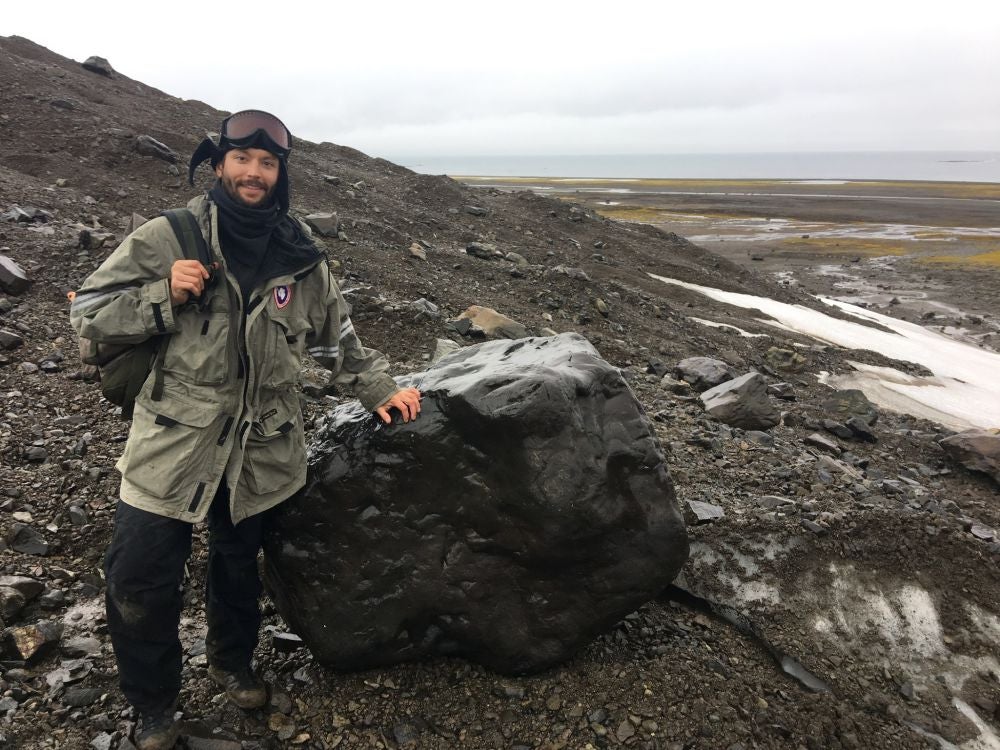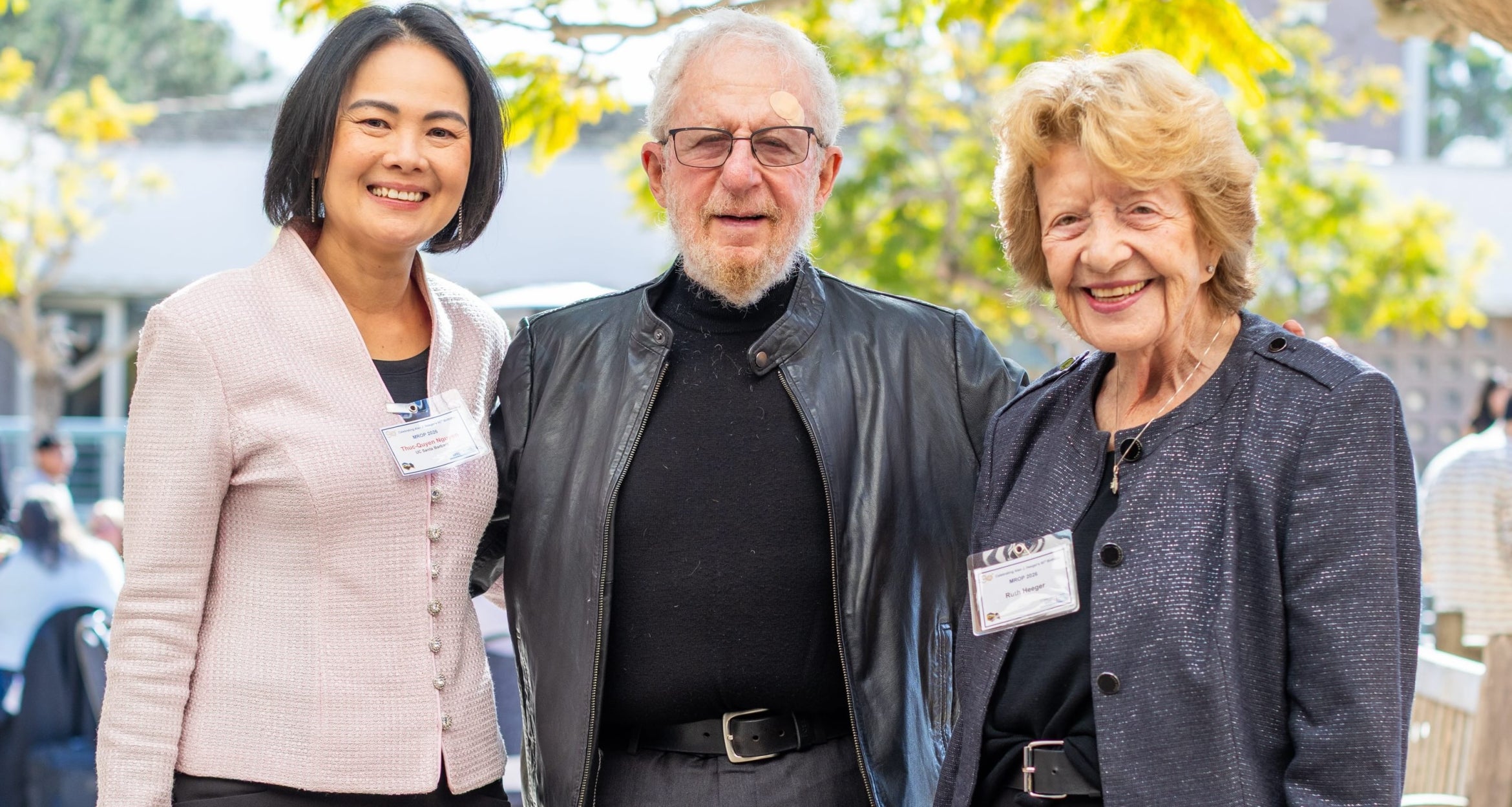
A Road Less Traveled
UC Santa Barbara is a long way from Baton Rouge, La., and even farther from Antarctica. But that’s the path — along with a stint in the Marine Corps — that Cameron Gernant took on his way to the seaside campus for a master’s degree in geology.
He’d never been to Santa Barbara, but he had spent four years at Marine Corps Air Station Miramar in San Diego. So, when a professor at Louisiana State University told the geology major about Alex Simms, a geology professor at UC Santa Barbara, it piqued his interest.
There was a lot to like. Simms studies sedimentology, Gernant’s field of interest, and the campus’s Department of Earth Science enjoys a top-notch reputation nationally. Plus, there was a bonus: a chance to do field work in Antarctica with Simms, a rare opportunity for a master’s candidate.
Those, he said, “and the benefits here and the prestige of the program are kind of what brought me here.”
Simms, Gernant’s advisor, said the veteran brought maturity and a can-do attitude to all he did.
“Cameron is a very hard working individual,” Simms said. “He is never afraid to dive into a problem, whether that is the ocean in Antarctica to grab a tide gauge sensor or to tackle processing GPS data, he is always up to the task. I have enjoyed working with him over the two years he has been at UCSB.”
Gernant, who served as a meteorological and oceanographic forecaster in the Marines, came to UC Santa Barbara hoping to work as a petroleum geologist after graduation. But the worldwide crash in oil prices and the COVID-19 pandemic have put a serious crimp in those plans. An internship in Bakersfield morphed into an abbreviated online work experience.
His Plan B: Get his MBA and work his way up the ranks.
“I’m looking at MBA programs for the fall because I want to diversify my skillsets,” Gernant said. “I really like geology, but I would like to move up into management with that geology background.”
His most likely destination, he said, is LSU. His family is in Baton Rouge and he’d able to pay in-state tuition. It’s also a campus where he feels comfortable, even if his transition from squared-away Marine to non-traditional undergraduate was, as most veterans find, a bit disorienting.
“It’s the lack of structure, the lack of cohesiveness, everything,” Gernant said. The only thing that bonds people at a university together is the fact that they go to that university; no one answers to the same person.
“My first quarter was really rough,” he continued. “I didn’t really know anyone on campus. Everyone that I knew from high school had already graduated. So I’m there with kids. I mean, I’m not that much older than everyone that I was in class with maybe three years or so, but it seemed like worlds apart when it came to what I had to talk about.”
He eventually found other vets — although he didn’t know it at first — and settled into a campus culture that revered military history and veterans.
“I think the last time they had an anti-American protest, it was like in 2011,” he said. “We had this kid that was trying to burn an American flag on campus and there was basically a riot. They had to bring in mounted police to come and escort the student out because they couldn’t protect him from the student body.”
It was an odd contrast to UCSB, where a long history of activism and protest are a matter of pride to many on campus.
“As far as the culture here,” Gernant said, “there are a lot of values that the society here holds that are a little bit different than my own. So that’s been very interesting to navigate that.”
Coby Dillard, coordinator of Veterans and Military Services, said Gernant was an excellent example of a student-veteran ready to learn and lead.
“Coming from LSU,” he said, “Cam already had a sense of what a strong program for military-related students should look like. He’s been one of our strongest student advocates; unashamed of his status as a veteran, and always willing to speak up for himself and our community. He’s been a source of inspiration and motivation for me, and I look forward to following his accomplishments in the future.”



